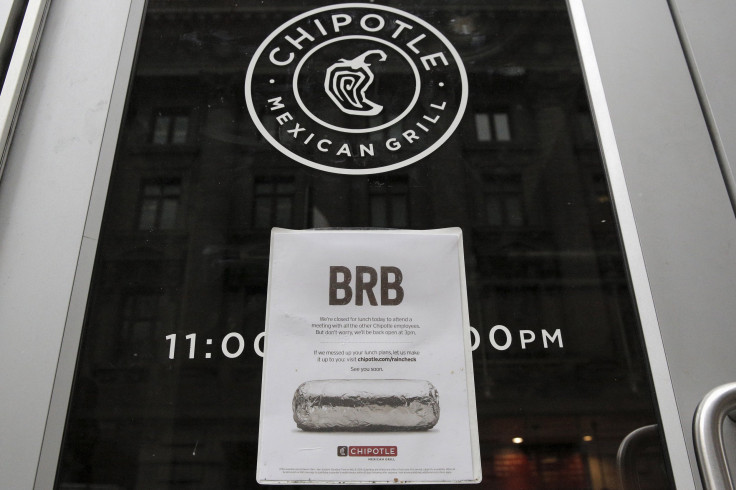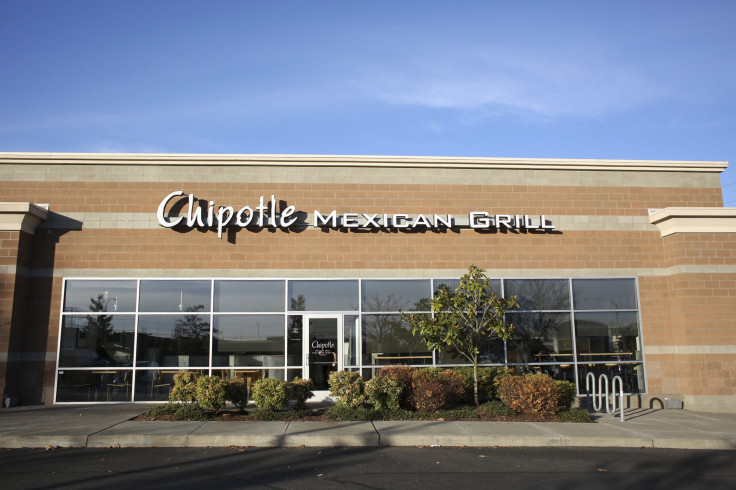Chipotle Food Safety: Burrito Company Outlines Changes To Prevent Future Outbreaks

From now on, things will be different at Chipotle.
The fast-casual burrito chain, which has suffered a series of food-related illness outbreaks, shut its stores for hours Monday to hold a nationwide staff meeting. During the meeting, CEO Steve Ells apologized for the recent outbreaks and described the company's newly devised food safety program.
The plan requires employees to wash their hands for at least 20 seconds every hour, or before preparing food and serving customers. Employees must then douse their hands in hand sanitizer. Sick employees cannot return to work until they've been symptom-free for five days — and they will be paid for all of those days, instead of the two they'd previously been allotted.
If anyone, whether customer or employee, vomits in a restaurant it will be closed immediately, and the incident will be reported to a new safety, security and risk database.
These changes, and several others, are among improvements that Chipotle promised to make Monday during the food safety meeting. The popular burrito chain's earnings and public image have been pummeled by foodborne illness outbreaks, and it is struggling to redeem itself and reassure customers that its burritos and tacos won't come with a side dish of the bacteria E. coli and salmonella, or the stomach bug norovirus. Those contaminants sickened more than 500 people who have eaten at Chipotle locations across more than a dozen states since July 2015.
Although the cause of two of the E. coli outbreaks remains unknown, Ells said during the presentation that cross-contamination between foods was the likely culprit. The outbreak of salmonella has been traced back to tomatoes, which the company said will now be chopped at a central location rather than in each restaurant. So will lettuce, peppers and other ingredients, Fast Company reported.

Ingredients will also go through what's known as high-resolution testing, when a large number of samples are taken from a relatively small batch of, say, cucumbers, and tested for germs. They will be tested both at farms upon harvesting and also at the central kitchens where preparation and chopping will now take place, a new food safety section of Chipotle's website explains.
According to that page, Chipotle will only marinate meat at night, after other ingredients have been put away, to ensure that germs from raw meat don't come into contact with other ingredients. Some produce — lemons, limes, jalapeno peppers, onions and avocados — will undergo a cooking process called blanching, where they are submerged, skins on, for five seconds in boiling water, although food safety experts have said it takes longer than that to kill germs.
The company also has plans to roll out a $50 million ad campaign. But that marketing effort is not expected to address food safety concerns. Instead, it will be "a large, traditional advertising campaign," Mark Crumpacker, the company's chief creative and development officer, said in an earnings call Feb. 2. “It reinforces our commitment to high-quality ingredients and great-tasting food,” he said.
© Copyright IBTimes 2025. All rights reserved.






















